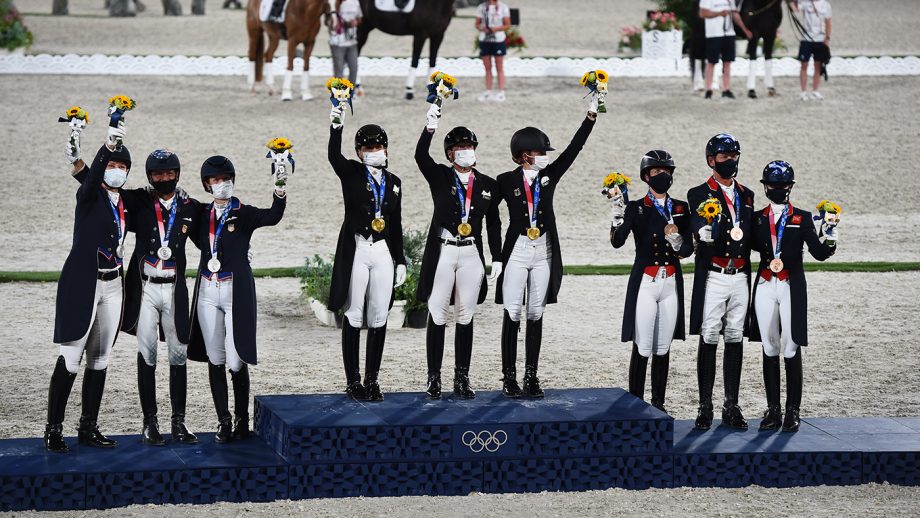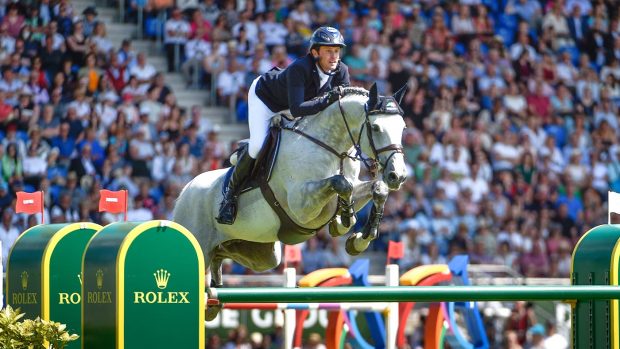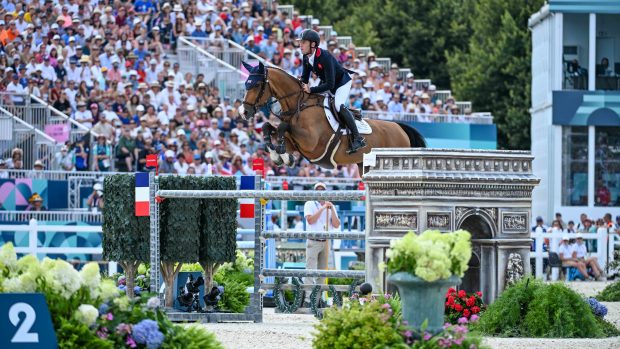Top British dressage rider and trainer Gareth Hughes on iconic freestyles and why being travelling alternate for Tokyo 2020 is a tough role
THE individual Olympic dressage final at the Tokyo 2020 Games was extremely exciting and the standard was very high. As well as amazing riding, I think there was very good, consistent judging. We had a running score to follow during each test, which meant when riders made a mistake you could see the difference it made to the score. With seven judges, there was no room for error.
If you want to win at this level, three things need to happen: you have to be technically very good, you have to be mistake-free and you have to take a chance and be brave.
Charlotte Dujardin is a supreme competitor so we always knew she would go for it. For me, when she did the second set of one-time changes, on the last line you knew she was really going for that medal. Gio had struggled a little with one-times, but you have to put it all on the line as that’s what wins medals, and it was brave of Charlotte to repeat her changes.
Jessica von Bredow-Werndl was the favourite coming into the Olympics. Her music from La La Land really suits her mare, TSF Dalera, and she was also mistake-free while taking chances. Jessica has been riding to this music for a few years now, and when it comes to freestyle music, it can be hard to know when it is time to produce a new one, especially when you have the sort of music you can win an Olympic gold with.
Some music might sound great and work at home, but you put it in an arena like this one and it might not come off. People interpret
music very differently; some music really enhances the horse and the riding, while other music may sound great but doesn’t really become a part of the ride.
It’s expensive, too, to create a new freestyle, but there will come a point where riders evolve and know that it is time to move on, although it can be tough.
That said, some freestyles become truly iconic. Edward Gal rode Total US to the music he had with the famous Totilas – Total’s sire – and it sounds as good now as it did in 2010. Isabell Werth, too, has been riding to her freestyle music for a long time, but it enhances her mare, Bella Rose, and they really dance to it.
A rider’s freestyle music can become a part of their identity, so why try to fix something that’s not broken?
I was proud to be in Tokyo as the alternate member of the British team. It’s a difficult position – you train and prepare as a team of four, but as an alternate you don’t get the adrenaline and the nerves that usually would finish off your preparation and give you your competitive edge. But you still have to be ready to ride, as you can be swapped in up until two hours before the grand prix and again up to two hours before the special.
I definitely looked at my watch two hours before the start time, and of course there was disappointment – you wouldn’t be a good competitor if there wasn’t – but at the same time you don’t want anything to happen to the team members either. The position comes
with a lot of privilege, but it is tough. You have to put your personal feelings aside, and be a team player and ready to offer support.
The Olympics were like no other, with the restrictions in place due to the pandemic, but in true Olympic fashion the sport was at its finest and a privilege to watch and be part of.
- This exclusive column can also be read in Horse & Hound magazine as part of our in-depth report and analysis of the Tokyo dressage individual competition, on sale Thursday 5 August
You may also be interested in…

Subscribe to Horse & Hound magazine today – and enjoy unlimited website access all year round

Charlotte Dujardin on her fantastic individual Olympic bronze – ‘I wasn’t going down without a fight’

‘The Brits pulled it out of the bag’: Peter Storr reviews the Olympic team dressage

H&H Olympic reporter’s blog: ‘Under the old format, Britain would have won dressage silver’

Richard Davison on Tokyo 2020: ‘Tiny margins decided the medals’




